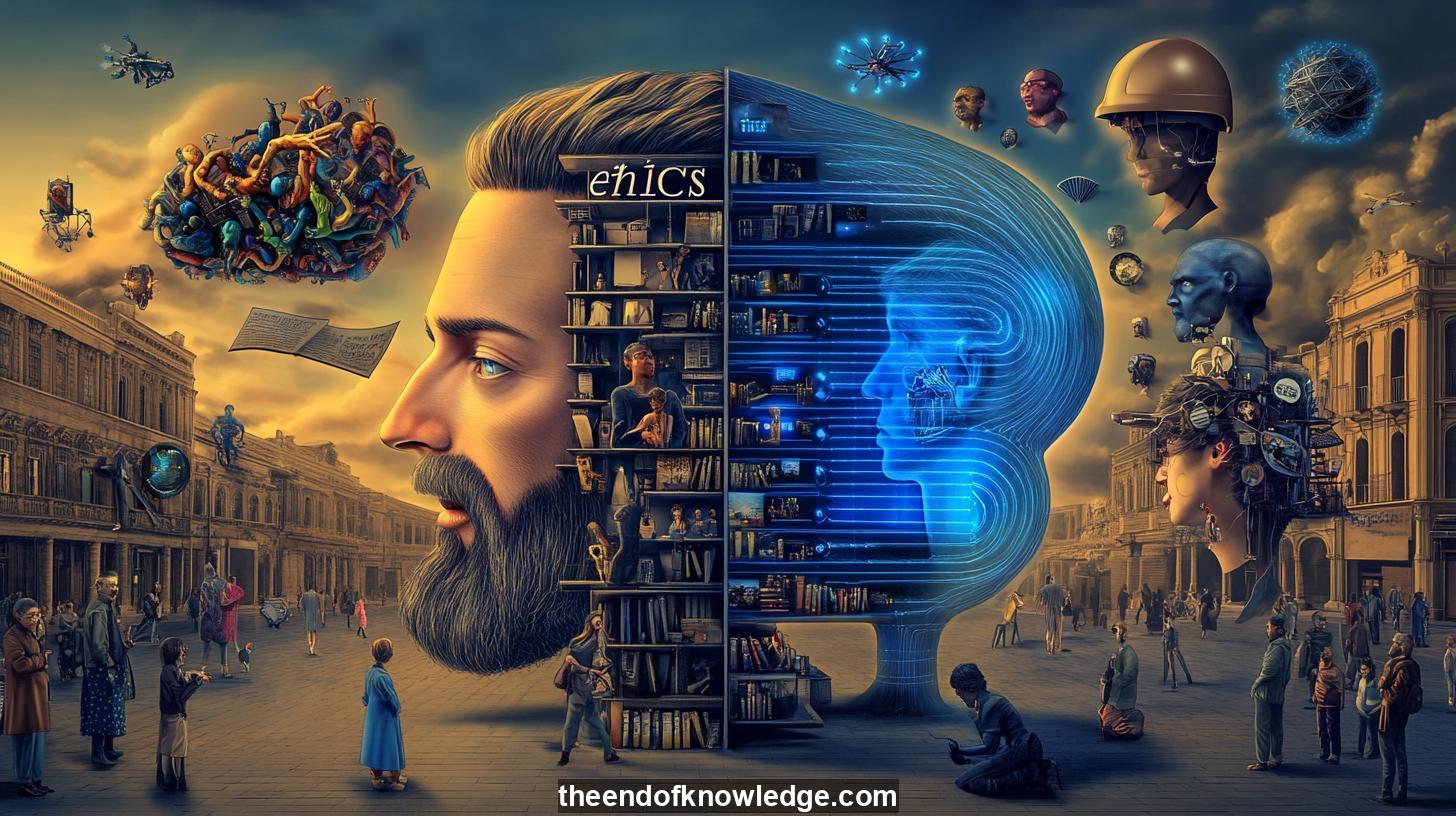 >
>
Concept Graph, Resume & KeyIdeas using DeepSeek R1 :
Resume:
The discussion revolves around the potential societal, economic, and ethical impacts of artificial intelligence (AI), focusing on scenarios that could be deemed apocalyptic. Participants explore how AI might disrupt traditional employment, exacerbate mental health issues, and concentrate power in the hands of large corporations. They emphasize the need for education, regulation, and ethical considerations to navigate these challenges while harnessing AI's benefits.30 Key Ideas:
1.- AI could lead to significant job displacement across various sectors, particularly in repetitive or automatable roles.
2.- Economic collapse scenarios involve AI disrupting markets and potentially causing widespread financial instability.
3.- The concentration of AI power in large corporations may lead to monopolies and reduced opportunities for smaller innovators.
4.- Mental health concerns arise from increased reliance on AI, potentially causing isolation or anxiety.
5.- Ethical considerations include the need for regulation to prevent misuse of AI technologies.
6.- Education and retraining are crucial for adapting to an AI-driven economy.
7.- Privacy and data security are significant concerns with the proliferation of AI systems.
8.- AI could exacerbate social inequalities by making access to advanced technologies unequal.
9.- The role of governments in regulating AI and ensuring ethical use is debated.
10.- AI's impact on employment may necessitate Universal Basic Income (UBI) discussions.
11.- The mental health implications of AI include potential increases in anxiety and depression.
12.- AI could revolutionize healthcare but raises concerns about data privacy and ethics.
13.- The need for transparency in AI decision-making processes is highlighted.
14.- Small businesses may struggle to compete with AI-driven large corporations.
15.- AI's influence on social interactions could lead to a decline in human empathy.
16.- The ethical implications of AI in mental health therapy are explored.
17.- AI's potential to manipulate public opinion through deepfakes and misinformation is a concern.
18.- The importance of human adaptability and lifelong learning in an AI era is emphasized.
19.- AI could lead to a two-speed society, where some thrive while others struggle.
20.- The intersection of AI and cybersecurity poses significant risks to global infrastructure.
21.- AI's role in education could either enhance learning or widen knowledge gaps.
22.- The potential for AI to create new job categories is acknowledged.
23.- AI's environmental impact, particularly in energy consumption, is a growing concern.
24.- The need for diverse perspectives in AI development to avoid biases is stressed.
25.- AI could enable new forms of artistic expression but may also displace human creators.
26.- The ethical use of AI in warfare and surveillance is debated.
27.- AI's impact on mental health includes both potential benefits and risks.
28.- The importance of human-centered design in AI technologies is highlighted.
29.- AI could lead to a redefinition of work and purpose in society.
30.- The balance between innovation and regulation in AI development is crucial for societal well-being.
Interviews by Plácido Doménech Espí & Guests - Knowledge Vault built byDavid Vivancos 2025